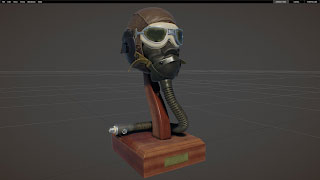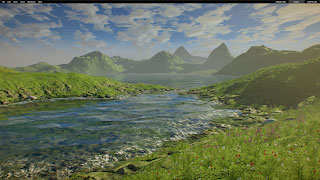Verus Engine is a modern, platform-agnostic 3D game engine. It is developed using C++ and HLSL. It is based on Vulkan and Direct3D 12 graphics APIs. The code is user friendly and well optimized. The engine is intended to be a full-featured solution for making games. It includes modules to handle input, audio, networking and other things. Hence there is no need to search for third-party libraries or write custom code.
- Windows 10, 8.1, 8, 7 (via Vulkan and Direct3D 11 renderers)
- 64-bit only, 32-bit is not supported
- Vulkan 1.1
- Direct3D 11 (Shader Model 5.0)
- Direct3D 12 (Shader Model 5.1)
- Native cross-platform code
- Same HLSL shader code for all APIs
- Deferred shading
- PBR/GGX with Metallic-Roughness workflow
- Efficient textures and streaming
- Large terrain support
- Built-in audio system
- Multiplayer support
- Custom user interface module
- Collision and physics support
- A bunch of post-processing effects
- Filesystem abstraction
- Other things
VerusEdit is an official editor for Verus Engine.
You can download the latest version of VerusEdit here: https://verushub.com/page/verusedit.
These features should be implemented in version 1.x:
- glTF file format support
- Materials v2.0: PBR/GGX with Metallic-Roughness workflow
- Direct3D 11
- OpenXR
- Shadow maps for all lights
- Ambient occlusion volumes
- Triggers
- Quest system, dialogue system
- Soft particles
- Directional lightmaps
- Waypoints and A-Star navigation
- Lua scripting
- Linux support
These features should be implemented in version 2.x:
- Signed distance field (SDF) fonts
- Ray tracing
- Mesh shaders
- Multithreaded renderer
- Some form of inverse kinematics (IK)
- Android and iOS support
Verus Engine is free for non-commercial use


